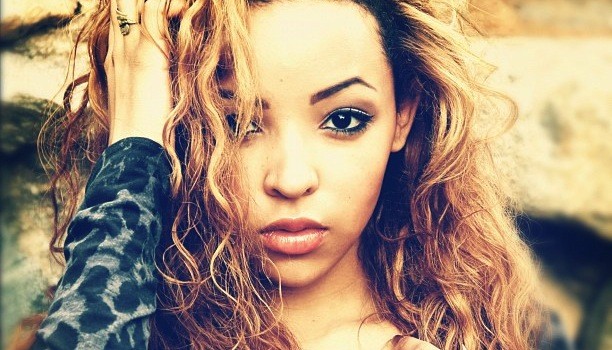Member Since: 3/18/2011
Posts: 2,565

|
Tinashe talks musical influences (Janet & Christina)

Quote:
Tinashe Kachingwe takes pride in producing, recording and self-releasing her own songs, but unlike most of her peers seeking R&B stardom through free mixtapes, at 21, she is already a credible industry veteran. And not just with music: Tinashe has acted in movies (Akeelah and the Bee), recorded voiceovers for animated films (The Polar Express) and been on TV (Two and a Half Men), in addition to opening 20 shows for Justin Bieber as part of the since-disbanded six-piece The Stunners. Sheís an artist of many mediumsócan you tell she was born in the í90s? But itís her solo music that caught our ear (and recently landed her a deal with RCA), and itís her inclination to work both sides of the recording booth thatís won our respect. From her home in LA, Tinashe spoke about growing up a performer, doing interviews in the Twitter era and why, whether youíre signed to a major or seeking a deal, thereís nothing like doing it yourself.
óduncan cooper
Tinashe: My dad was born in Zimbabwe, and my mom is from Iowa. My earliest memories are singing songs in the household, either with my family or performing for them. It was just a big part of my day-to-day. My parents played a lot of Sade, Michael Jackson, Janet Jackson, Tony! Toni! Tonť!, Whitney Houston, Mariah Carey, and I kind of learned by mimicking what they were doing. From when I was like, one year old, my parents realized I had a huge passion for putting on a show. I started dancing when I was four, and I was in my first movie when I was five, but I never felt like my parents were pushing me in any particular direction. They were just there to support me.
The first artist I was a big fan of that my parents didnít introduce me to was Christina Aguilera. She was the first concert I went to, and vocally, she was a big influence. I was young at the timeóprobably sevenóand she was still a teenager, just a kid who could out-sing her competition. A few years later, I rediscovered Janet, and I got to listen to some of her albums that were older than the ones my parents had played when I was little. Iíd watch all her concert DVDs, try to learn the choreography. It was very exciting to feel like you could dig up all this research on somebody.
In the digital age, things in the music industry have changed really quickly in a short period of time. Even the concept of interviews is different now. Most of the questions I get asked by journalists have already been asked on Twitter and Facebook 100,000 times, and my fans all know the answers. But that does open doors for new ways of doing things, and hopefully itíll spark artists to be more creative with how they put out information. I just donít want to be put in a box. I want to have the ability to grow and evolve.
Record labels donít necessarily have the formula in black-and-white anymore. I can just look at my peers and obviously see that no one is going in stores and buying music. I realized that, hey, itís probably more valuable for more people to hear my music than for me to sell it. For the free mixtapes that I put out, the label basically wasnít involved at all. I either made the beats myself, found people I knew through social media or literally crowd-sourced production. I recorded it myself, I mixed it myself. I donít think itís essential to do that, because thereís so many professionals whoíre paid to do those jobs, but I think itís incredibly, incredibly advantageous. Itís so much faster: my last three projects were only put out because I was able to create the music myself, and I wasnít limited by waiting for someone to do something for me. Itís just so easy to go on YouTube and learn to do anything. Why not know how to produce, why not know how to mix, why not know how to record when itís so simple to do it yourself?
|
Read more: http://www.thefader.com/2014/02/11/t...#ixzz36vnsf7C2
She has great taste  . Two of the best Pop Divas 
|
|
|
|